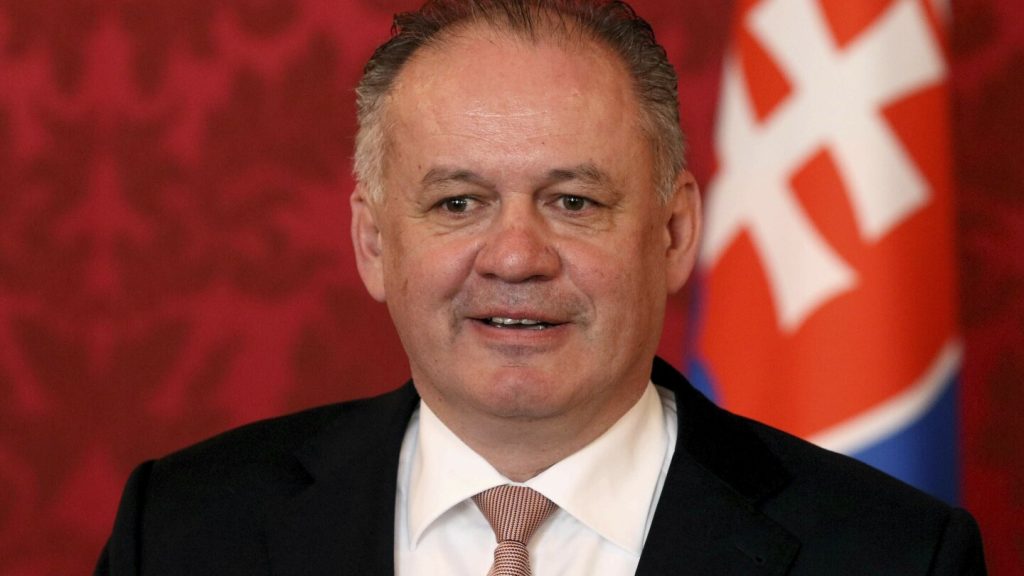The appeals court in Slovakia has upheld a lower court ruling that found former President Andrej Kiska guilty of tax fraud and issued him a suspended sentence. The original sentence of two years was lowered to one, and a fine of 15,000 euros handed to Kiska was dismissed. Additionally, a six-year ban on doing business was cancelled. Kiska, who pleaded not guilty, plans to challenge the verdict at the country’s Supreme Court to clear his name. This case stems from 2014 when Kiska, a successful businessman-turned-philanthropist and political newcomer, was running for president.
The court determined that Kiska illegally included tax receipts from his presidential campaign in the books of his KTAG family company, despite it not being part of the firm’s business activities. Through an associate, Kiska’s company claimed a tax return worth over 155,000 euros. Kiska’s presidency was marked by clashes with then-Prime Minister Robert Fico, whose leftist party was embroiled in corruption scandals. Kiska’s support for street protests led to the downfall of Fico’s coalition government in 2018 after the murder of an investigative reporter investigating government corruption. Kiska, a pro-West politician, chose not to run for a second term in 2019.
Despite the legal setback, Kiska maintains his innocence and plans to appeal to the Supreme Court. As the first former president of Slovakia to be tried and sentenced, Kiska’s case has garnered significant attention. His tenure in office was marked by a commitment to anticorruption efforts and pro-Western policies in contrast to the Fico-led government. The decision to challenge the verdict highlights Kiska’s determination to clear his name and reputation as he navigates the legal process. The political ramifications of the case could influence the public perception of Kiska and his legacy as a key figure in Slovakian politics.
The ruling against Kiska comes at a time of political change in Slovakia, with Fico’s party winning the parliamentary election and forming a new government in coalition with other parties. The political landscape in Slovakia has been shaped by ongoing corruption scandals and challenges to democratic principles, making Kiska’s case a focal point for debates on accountability and transparency in government. The decision to uphold the guilty verdict raises questions about the intersection of politics and the legal system in Slovakia and the implications for public trust in political leaders. Kiska’s legal battle may continue to have ripple effects on the country’s political dynamics and governance in the coming months.


